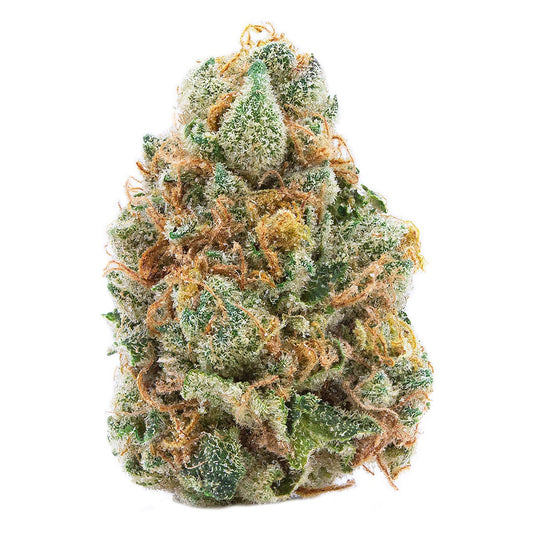Terpenes: if you're a fan of aromatic plants or have dabbled in the world of cannabis, you've likely come across this term. But what exactly are terpenes, and is it possible to have an allergic reaction to them? Let’s dive into the aromatic world of terpenes and see how they might impact our health.
What Are Terpenes?
Terpenes are aromatic compounds commonly found in flora and fauna. Think of the last time you inhaled the calming scent of lavender or the invigorating aroma of rosemary. What you're enjoying is the presence of terpenes. These compounds are responsible for the unique scents in flowers, fruits, and even cannabis.
Terpenes and Cannabis: A Fragrant Relationship
Cannabis is a particularly rich source of terpenes. These compounds give different cannabis strains their distinct aromas — from earthy and herbal to citrusy or even cheesy.
Beyond their olfactory delights, some believe terpenes might affect how the body interacts with cannabinoids, the primary active compounds in cannabis. This synergy, often called the "entourage effect," suggests that terpenes could modulate or enhance the effects of cannabinoids like THC and CBD.
To learn more about terpenes found in cannabis, be sure to visit Kindling’s Terpene Guide!
Types of Terpenes
There are numerous terpenes, each with unique scents and potential aroma-theraputic properties:
Limonene
Found in lemons, oranges, lime, and even juniper, this terpene is prominent in sour, and lemon-y phenotypes. The zesty citrus scent is thought to be uplifting, while some studies have shown that citrus oil containing limonene may have a calming effect on mice.
DISCOVER LIMONENE-RICH PRODUCTS
Pinene
Pinene is one of the most well-researched terpenes. There are two types of pinene structures, alpha and beta. The former, alpha-pinene, is one of the most abundant terpenes found in nature and is common in coniferous trees like pine, fir, and spruce. It's is responsible for the clean, uplifting aroma that can be experienced while wandering through a forest of fresh pine trees.
EXPLORE PINENE-RICH CANNABIS PRODUCTS
Myrcene
In many strains, myrcene is the most dominant terpene, it's commonly found in potent antioxidants like lemongrass, mangoes, and basil. Some studies (mostly on mice) support claims that myrcene has calming or sedative effects, though more human trials are needed.
SHOP CANNABIS PRODUCTS CONTAINING MYRCENE
Caryophyllene and Beta-Caryophyllene
Caryophyllene and Beta-Caryophyllene is present in black pepper, cloves, oregano, basil and more. It is found in many of the known cannabis strains and imbues a spicy, peppery aroma.
DISCOVER CARYOPHYLLENE-RICH CANNABIS PRODUCTS
Terpinolene
Terpinolene is present in plants like apples, lilac, sage, juniper, and rosemary. It produces a herbal or floral fragrance and is among the lesser common terpenes in cannabis although you will find terpinolene dominant in strains like Ghost Train Haze and Jack Herer.
EXPLORE TERPINOLENE CANNABIS PRODUCTS
Linalool
Maybe one of the most easily recognized terpenes, linalool is predominantly found in lavender and is credited for the plant's calming effects and potential anti-inflammatory and anti-anxiety properties. In cannabis, those calming properties are often associated with the relaxing nature of indicas.
Humulene
Found in hops and other plants like ginger, humulene gives cannabis distinctly spicy, herbaceous notes with subtle floral accents.
EXPLORE CANNABIS STRAINS CONTAINING HUMULENE

Can You Be Allergic to Terpenes?
Now, the burning question: can these aromatic compounds trigger allergies? Many terpenes are bioactive, which means they can affect the body. In certain plants, terpenes have evolved to repel insects and predators, which can sometimes result in a strong reaction when humans come in contact with them.
Some people might experience allergic reactions to specific terpenes found in essential oils or other natural products. Common symptoms can range from skin irritations, sneezing, or even asthma-like symptoms in more severe cases.
However, documented cases of terpene allergies, especially from cannabis use, remain relatively rare. As with any natural compound, individual responses can vary. It's always wise to monitor your reactions when trying a new product or strain of cannabis.
Terpenes are an integral part of nature's aromatic toolkit. While they add depth and diversity to our sensory experiences, especially in the realm of cannabis, it's essential to remember that individual reactions can differ. If you suspect you have an allergy, it's always best to consult with a healthcare professional.


















